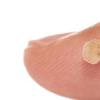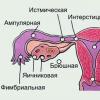How to treat a long runny nose. Causes and treatment of chronic rhinitis in adults. Four main types
Minor deviations in health can lead to dangerous complications. Banal rhinitis can provoke many serious diseases, therefore, if a runny nose does not go away for 2 weeks in an adult, you should immediately consult a doctor. 
Prolonged runny nose is a rather unpleasant pathology that interferes with the normal life of the patient. If the snot in an adult does not go away for more than a week, the problem becomes a real torment. Runny nose can be caused by improper treatment of respiratory diseases. Untreated rhinitis is quite common, since the modern rhythm of life does not always make it possible to consult a doctor in a timely manner at the first sign of a cold.
The use of vasoconstrictor drops for longer than 2-3 weeks may contribute to the disruption of the normal functioning of the blood vessels in the nasal passages. The capillaries expand, causing nasal congestion, increasing the amount of secretions. In fact, such remedies should not be used for more than 5 days, even if the runny nose does not go away for more than a month.
Prolonged rhinorrhea without cold symptoms can mean an allergic reaction of the body, which could occur to drugs, plant pollen, house allergens. In this case, a runny nose can last up to 2 months if treatment is not prescribed and exposure to allergens is not eliminated. However, the most common cause of a prolonged runny nose may be its transition to a chronic form. 
Varieties of chronic rhinitis
If the snot does not go away for a long time, you need to urgently look for the cause. It happens that the patient's torment lasts up to six months. Purulent and mucous discharge from the nose, constant congestion most often appear with various types of chronic rhinitis:
- catarrhal;
- vasomotor;
- hypertrophic;
- atrophic.
catarrhal
A runny nose that appeared on the background of respiratory diseases is not uncommon. Inflammatory processes in the nasopharynx often lead to copious discharge from the nose. With a mild form of the disease, developed rhinitis passes quite quickly. Usually, a few days are enough for a complete recovery.
If a runny nose does not go away for a week, two, three - this is evidence that the pathology has developed into a chronic form. This condition is characterized by periodic exacerbations and attenuation of the disease for six months or more. During the period of remission, mucous secretions may stop, but itching, sneezing, and dry mucous membranes appear. The reason why a runny nose becomes chronic is most often the wrong treatment. 
Vasomotor
If a runny nose does not go away for a month, vasomotor rhinitis may be the cause. The causes of this pathology are still not fully understood. It is reliably known that this type of disease is not characterized by an inflammatory process in the nose. Most often, the problem develops due to circulatory disorders in the mucous membrane of the lower nasal conchas. As a result of excessive vasodilation, edema develops, mucous secretions appear, which do not go away for months.
You can recognize vasomotor rhinitis by the color of the mucus. It is liquid, transparent and has no smell. Such snot lasts a long time and interferes with normal life. To alleviate their condition, patients have to constantly use vasoconstrictor drops, which is absolutely impossible to do. As a result, instead of improvement, one can only get complications. 
hypertrophic
This type of rhinitis occurs due to thickening of the mucous membrane of the nasal passages. As a result, the normal mucosa is replaced by a denser fibrous tissue, which leads to squeezing of the vessels and impaired blood circulation. A runny nose provoked by such a pathology can last up to six months.
Why does a runny nose not go away for a long time in such a situation? The reason is the regular inhalation of caustic chemicals, for example, at work, as well as the curvature of the nasal septum due to injury. There is no specific treatment, the situation is resolved by surgical intervention.
Attention, the photo may be unpleasant to view.

[hide]
atrophic
If the runny nose does not go away for a long time, thinning of the mucous membrane may be the cause. Patients complain of constant pain and burning sensation, especially when instilled. This disease is often accompanied by discharge with blood impurities and heavy bleeding.
How to identify the cause of a prolonged runny nose?
Prolonged runny nose can cause serious pathologies. What to do if a runny nose does not go away? Timely diagnosis will help to avoid serious complications. To determine the cause of rhinitis, a whole range of diagnostic measures will be required.
Laboratory diagnostics
If a runny nose does not go away for 2 weeks or more, you will need to take a general blood test with a detailed formula. An increase in the number of leukocytes indicates the beginning of the inflammatory process. In addition, the doctor may prescribe an immunofluorescent analysis of the imprints of the nasal mucosa. This method of research will help to identify viral agents in the body.
PCR analysis may also be required. With its help, a large number of pathogens that contribute to the development of many diseases are determined. In this way, it is possible to detect mycoplasmal or chlamydial infection. 
Instrumental Methods
- Rhinoscopy. This is one of the most informative ways to diagnose diseases of the sinuses, nasal concha and its cavities. The most commonly used anterior or posterior rhinoscopy. In the first variant, a small nasal mirror and a head reflector are used for inspection. For posterior rhinoscopy, a nasopharyngeal mirror and a spatula are used. At the same time, a study of the nasopharynx, nasal cavities, inferior conchas and visible openings of the Eustachian tubes is carried out.
- Endoscopic rhinoscopy is a modern technique that is prescribed for suspected development of sinusitis. With the help of a flexible endoscope, the nasal cavities can be more thoroughly examined.
- Diaphanoscopy - translucence of the paranasal sinuses. This is one of the simplest and most informative diagnostic methods used today. The procedure is carried out as follows: a bright light source is applied to the upper or lower sinus. If there is a pathology, the air sinus will not transmit light well. This technique is now used instead of radiography.
Examination of the patient, taking an anamnesis and the results of a comprehensive examination help to correctly establish the diagnosis. Thanks to this, the most effective treatment will be selected.
Methods for the treatment of a long persistent runny nose
How to cure a protracted runny nose? Therapeutic tactics are developed by the doctor based on the established diagnosis. Depending on the cause that provoked the pathological condition, a comprehensive course is selected, including the use of medications and folk remedies, as well as physiotherapy procedures.
A mandatory technique used in almost all types of rhinitis is washing the nasal cavities. This hygienic procedure helps to flush out bacteria, viruses, and pathological secretions from the body. For this, doctors advise using products with a solution of sea salt:
- Dolphin.
Dolphin
Treatment of the common cold of a viral and bacterial nature
How to treat a protracted runny nose that has arisen due to exposure to pathogenic agents? The disease responds well to therapy with herbal remedies of complex action containing essential oils. They have an antiseptic and mucolytic effect, facilitate nasal breathing and contribute to a more active discharge of mucus. These funds include:
- Pinovit;
- Vitactiv.
In addition, the use of vasoconstrictor drugs may be required. The maximum duration of treatment with such drops is 5 days, since longer use can lead to addiction, as well as the development of drug-induced rhinitis.
Therapy for allergic rhinitis
If the cause of a prolonged runny nose was exposure to allergens, then first of all you need to try to identify it and eliminate it. It is necessary to remove feather pillows, soft toys, curtains from the house for the period of treatment, as well as temporarily relocate pets to another place. Daily wet cleaning is recommended to avoid exposure to house dust.
In addition to these measures, treatment with antihistamines will be required. They are prescribed in the form of tablets, as well as drops. The most effective tablet means are:
Nasal drops "Vibrocil" will also help to alleviate the patient's condition. They well relieve nasal congestion, eliminate swelling of the mucous membrane, normalize nasal breathing.
Treatment of vasomotor rhinitis
With this kind of protracted runny nose, symptomatic therapy is most often used. Depending on the cause that caused the pathological condition, the following methods are used:
- Washing the nasal cavities. The procedure is carried out with preparations containing sea salt or ordinary sodium chloride.
- The use of corticosteroids. Significantly reduce the number of exacerbations will help special hormonal sprays. The course of treatment with such drugs should be at least 30 days. Thanks to the cumulative effect, a mild effect on the body is provided. Another advantage of such drugs is their local action without absorption into the systemic circulation.
- Nasal block. This is a special procedure that involves the introduction of novocaine into the nasal cavities, as well as long-acting glucocorticosteroids. It helps to reduce foci of inflammation and relieve swelling.
- Antihistamines. Antiallergic drugs are the basis of the entire complex of treatment. They help to cope with heavy discharge, sneezing and other unpleasant symptoms.
Methods for the treatment of other rhinitis
What to do if a severe runny nose in an adult does not go away for a long time? Of all the listed varieties of protracted rhinitis, atrophic and hypertrophic ones are the most difficult to treat. The latter requires mandatory instrumental or surgical intervention. Excess mucosa is cauterized, removed with cryotherapy, or conchotomy is performed - partial or complete removal of scar formations. 
The course of treatment of atrophic rhinitis is quite complicated. Medications in each case should be selected by a doctor. With frequent bleeding, the introduction of cotton swabs soaked in petroleum jelly into the nasal passages is prescribed. In addition, to normalize the condition of the mucosa, irrigation is carried out with the drug "Aevit". It may also be necessary to use vasoconstrictor drops, antibacterial drugs, immunostimulants of general and local action.
Physiotherapy for prolonged rhinitis
A persistent runny nose is a serious problem that causes great discomfort. To date, there are many effective physiotherapy procedures that are an excellent addition to the main treatment of protracted rhinitis:
- ultrasound therapy. This method stimulates metabolic processes, increases blood flow at the site of exposure, and accelerates cell renewal.
- OKUV - irradiation with short ultraviolet waves. The procedure has a destructive effect on microbes, fungal microorganisms. Waves penetrate the cell and lead to a change or destruction of DNA.
- Endonasal electrophoresis. Evacuation of a medicinal substance under the influence of weak electric currents directly to the focus of inflammation. Medicinal solutions used for therapy are much better absorbed into the tissues, which can significantly speed up recovery.
- UHF - ultra-high frequency therapy. This method is based on the effect of an electromagnetic field on the body. There is an acceleration of blood flow, lymph flow, as a result of which immune cells enter the focus of inflammation in a larger volume.

Folk remedies against a prolonged runny nose
If a runny nose in an adult does not go away for a long time, homemade recipes are also considered to be an effective addition to a medical course of treatment. Using many of them, you can significantly alleviate the patient's condition with prolonged rhinitis. How to treat such a pathology, which of the recipes are considered the most effective?
Inhalations
If a runny nose does not go away in an adult, inhalations at home will help. Decoctions of medicinal plants are considered an effective remedy:
- calendula;
- chamomile;
- eucalyptus;
- pine buds.
To do this, 2 tablespoons of vegetable raw materials are poured with half a liter of boiling water. Then they breathe over the steam, wrapping their heads in a towel. 
Nasal drops
If a protracted runny nose in an adult does not go away for a month, then you can use homemade nasal drops. In the absence of allergies, you can prepare drops from the juice of carrots, beets, onions. To do this, the squeezed juice is diluted with vegetable oil or pure water in a ratio of 1:1. No less effective are juices from domestic plants of aloe or Kalanchoe.
If the runny nose is prolonged, self-prepared means are instilled into one nostril, 2-3 drops each. Multiplicity of application - up to 4 times a day. The course of treatment is 7 days.
Other home treatments
How to cure long-term rhinorrhea? If a runny nose does not go away for two weeks or more, after consulting a doctor, other methods can be used. With the development of rhinitis on the background of a cold, the condition can be alleviated by improving blood circulation throughout the body. During illness, breathing exercises and plenty of fluids are useful. All these activities will contribute to the speedy removal of pathogenic agents from the body.
R initis, or in other words, a runny nose that lasts more than 10-14 days, is considered protracted in medical practice. This condition is not the norm and requires mandatory diagnosis, since it can have different causes, but similar symptoms. Depending on the underlying cause, the treatment is also different.
Ignoring a runny nose or incorrect therapy can lead to complications, the list of which includes: sinusitis, sinusitis of various origins, tonsillitis, laryngitis, tracheitis and others.
What you need to know about the etiology of the process and how to cure a protracted runny nose should be understood in more detail.
A prolonged runny nose in an adult occurs as a result of prolonged exposure to the mucous membranes of the nasal cavity of an irritating factor.
Such factors may be:
- viruses;
- bacteria;
- allergens;
- medications.
It is important to understand the difference between acute and chronic rhinitis. The acute form is a primary immune reaction to the ingress of pathogenic and opportunistic microorganisms on the mucous membranes of the nasal passages, which includes the secretion of nasal mucus, swelling, fever.
In a protracted phase, the pathological process passes if the treatment was started out of time, or carried out incorrectly. Bacteria spread deeper and colonize new areas of the body - the paranasal sinuses, pharynx or auditory tube.
From this we can conclude that a runny nose that does not go away for a long time is already a secondary symptom of a deep inflammatory process.
What are these processes:
- chronic inflammation of the sinuses - sinusitis, sinusitis;
- chronic inflammation of the pharyngeal tonsils and pharynx - tonsillitis and pharyngitis;
- smoking, including passive;
- uncontrolled and prolonged use of vasoconstrictor nasal drops;
- dry indoor air;
- pathological curvature of the nasal septum, congenital or resulting from a trauma to the nose;
- congenital anomalies in the structure of the conchas of the nasal cavity - in this case, a runny nose worries a person from an early age of life.
The main types of rhinitis of a protracted course and their symptoms
Depending on the nature of the origin of a protracted runny nose, there are several types, the clinical symptoms of which also differ.
| Types of protracted rhinitis | Causes |
|---|---|
| Catarrhal (may be atrophic and hypertrophic) | It is characterized by the localization of the inflammatory process in all parts of the nasal cavity. Depending on the severity of the flow, the mucous membranes of the nose become thinner and deformed, which causes atrophic rhinitis, or, conversely, grow and thicken, resulting in progressive hypertrophic rhinitis. Depending on the nature of origin, catarrhal rhinitis can also be viral or bacterial. |
| Allergic | It develops under the influence of allergens on the respiratory organs, which can be dust, tobacco smoke, mold fungus, plant pollen, poplar fluff, pet hair, household chemicals. |
| medical | It develops as a result of prolonged use of vasoconstrictor nasal drops, which leads to addiction to the body and the need to increase the doses of the drug, and then to a complete lack of effect. |
| Vasomotor | Most often occurs in pregnant women and is due to changes in the hormonal background. Also, vasomotor rhinitis is a consequence of excessively dry and dusty indoor air that the patient breathes. |
Common symptoms of chronic rhinitis are nasal congestion, profuse discharge, impaired nasal breathing and smell. Each type of rhinitis has its own clinical manifestations.
catarrhal rhinitis
A runny nose of viral origin is characterized by nasal congestion, tissue swelling, sneezing, redness of the skin around the vestibule of the nasal cavity due to constant irritation by flowing secretions (the mucus contains a large amount of salts that negatively affect the skin around the nose and cause it to burn).
The first 3-4 days of discharge from the nose are transparent, mucous, on the 5th day they acquire a yellowish tint and become thicker. In the case of improper treatment or its absence, the secondary bacterial flora joins the viral rhinitis and then the discharge from the nose becomes green and has an unpleasant odor.
With atrophic lingering rhinitis, the patient is prone to frequent nosebleeds, complains of dryness and itching in the nose, the formation of crusts, which, when removed, leave ulcerative and erosive formations on the surface of the mucous membranes.
Hypertrophic catarrhal rhinitis is characterized by a violation of smell, the appearance of bad breath, chronic nasal congestion, which does not go away even after the use of vasoconstrictor nasal drops.
Allergic
It is characterized by sudden swelling of the mucous membranes, itching, burning in the nose, constant sneezing, profuse clear watery snot, paroxysmal cough.
At the same time, tears may flow from the eyes, redness of the conjunctiva, swelling of the eyelids is observed. In severe cases, allergic rhinitis can be complicated by swelling of the tissues of the laryngopharynx and asphyxia (suffocation).
medical
This type of prolonged runny nose is characterized by persistent nasal congestion, which disappears only for a short time after the use of nasal vasoconstrictor drops. The patient complains of a worsening sense of smell, lack of air, headache and dizziness. There is little or no discharge from the nose. Read more about medical rhinitis in.
Vasomotor
They are an inevitable companion of expectant mothers and persons who are constantly in a room with heaters turned on. Clinically, vasomotor rhinitis is manifested by nasal congestion and a deterioration in the sense of smell, which increases in the supine position, as a rule, when going out into fresh air, especially in foggy weather, all unpleasant symptoms disappear on their own.
General principles of treatment
You can cure a protracted runny nose only if you know exactly the cause of its occurrence - for this you should consult an otolaryngologist.
The general principles of therapy that are used for all types of prolonged rhinitis are:
- indoor air humidification- to maintain the optimal level of humidity, use a humidifier, or simply hang wet terry sheets near heating appliances;
- plentiful drink - alkaline mineral waters, warm tea, compote, juice, cranberry juice, rosehip broth are suitable (the liquid helps to remove toxins from the body, helps to thin viscous mucus, and prevents the spread of infection to the lower respiratory tract);
- inhalations - carry out thermal, steam, through a nebulizer. A good effect is brought by special pharmacy solutions for inhalation (for a nebulizer) or essential oils, herbal decoctions (for steam inhalers), a detailed description of the process and drugs is in this article;
- symptomatic remedies– lavages, vasoconstrictive nasal drops, nasal oil solutions, antihistamines and hormonal metered sprays;
- physiotherapy procedures- are carried out during the period of remission (subsidence) of an acute inflammatory process and are effective in viral and bacterial rhinitis.
Treatment of the allergic form
Treatment of chronic rhinitis in adults of allergic origin begins with finding out the allergen that provoked this condition, and stopping contact with it. To do this, you need to contact an allergist to conduct skin tests.

In the event that it is impossible to completely stop contact with him, for example, with rhinitis against the background of flowering herbs and trees, the doctor selects medications that will help relieve swelling and alleviate the patient's condition.
To facilitate nasal breathing, the patient is prescribed:
- Nazivin;
- Farmazolin;
- Naphthyzin;
- Rinazolin;
- Xylometazoline.
Drops are used only if necessary, but not more than 2 times a day, in order to prevent addiction, and the total duration of therapy is no more than 3-5 days.
The list of medicines is as follows:
- Avamis metered spray;
- Nasonex;
- Allergodil;
- Flixonase.
The duration of the course of treatment is determined by the doctor, depending on the severity of the allergy and the individual characteristics of the body, usually it is at least 7-10 days.
In severe allergic rhinitis, accompanied by swelling of the tissues of the pharynx and conjunctivitis, additional drugs of general action from the group of antihistamines are prescribed:
- Suprastin tablets;
- Tavegil;
- Loratadine;
- Diazolin;
- Claritin.
Treatment of a protracted bacterial form
Treat a protracted runny nose with yellow, or should be treated mainly with antibiotics, since such symptoms indicate the addition of a bacterial flora.
A topical antibiotic in the form of a metered nasal spray is Isofra. The active ingredient of the drug Framycetin is an antibiotic from the group of aminoglycosides.

A huge advantage of the drug is that Isofra acts locally, practically without being absorbed into the general bloodstream. The drug is highly effective in the treatment of complicated bacterial rhinitis, nasopharyngitis, sinusitis and sinusitis. It can be used as an independent tool, and as part of complex therapy.
Antibacterial agents of systemic action (Amoclave, Augmentin, Sefpotek) are used in case of attachment of other symptoms in the form of headache and ear pain, general weakness, about an increase in body temperature of more than 38.1 degrees, Ibuprofen is prescribed.
Preparations based on colloidal silver help to dry the irritated mucous membrane and disinfect it well - Protargol or Kollargol, and mucolytics will help thin the thick nasal mucus Sinupret and Gelomirtol. There will be more snot, but a more liquid consistency, which will facilitate their removal.
Before instillation of any medicine, the patient should thoroughly clean the nose of accumulated mucus and crusts by washing it with saline at the rate of 1 teaspoon per 0.5 liter of warm water.
Never start burying antibiotics in your nose on your own, as they are absolutely ineffective against a viral infection. The diagnosis of bacterial rhinitis is made on the basis of the results of bakposev from the nasal cavity.Treatment of the vasomotor form
In adults, vasomotor rhinitis has many forms and causes - from dusty air and an allergic reaction to endocrine disorders in the body (more). Even an experienced doctor is not always able to establish its true etiology.

Without diagnosis, treatment is symptomatic and is limited to the use of local hormonal ( Avamys, Nasonex) to eliminate edema and rinse the nasal passages with saline solutions.
In pregnant women, vasomotor rhinitis is caused by hormonal changes, so any therapy will be ineffective and may even harm the fetus.
The phenomena of a prolonged runny nose in this case will pass after childbirth on their own. To facilitate nasal breathing, the expectant mother is recommended to be outdoors more often, monitor the humidity in the room, and ventilate the room more.
To eliminate dryness in the nose, you can use pharmacy solutions for washing and moisturizing the nasal cavity:
- Aqualor shower;
- Aquamaris;
- Salin;
- Humer;
- But-salt.
You can also use the usual isotonic sodium chloride solution 0.9% - it and all of the listed drugs are absolutely safe and can be used from the first days of pregnancy.
Treatment of protracted catarrhal rhinitis
Treatment of catarrhal rhinitis is divided into general and local. Local therapeutic actions are aimed at eliminating the symptoms of the disease that prevent the patient from fully breathing:
- cleansing and moisturizing the nasal cavity from mucus and crusts - saline solutions based on sterile sea water or saline sodium chloride solution are used;
- vasoconstrictor nasal drops - quickly relieve swelling of the tissues, reduce the secretion of mucus from the nose, facilitate breathing;
- local antiseptics - a solution of Miramistin, Furacilin and Chlorhexidine is used to wash the nasal cavity from accumulated pathological mucus and destroy the infection in the nose;
- oil drops and sprays - use Pinosol, Evkazolin, these are preparations with essential oils of mint and eucalyptus, which promote the healing of microscopic cracks on the mucous membranes of the nasal cavity, and also create an invisible protective film on their surface that prevents the mucous from drying out.
General therapeutic actions are inhalation. The procedure can be performed over a basin of hot water, where essential oils or a decoction of medicinal plants are added - the patient first cleans the nose of crusts and mucus and calmly breathes steam through the nose, covering his head with a sheet.
After such steam inhalation, the outflow of mucus improves, sputum is expectorated, swelling of the mucous membranes decreases, and nasal breathing is facilitated. The procedure also has contraindications, so you should consult your doctor before starting treatment. Read more about all types of inhalation procedures.
A safer and more effective treatment for chronic rhinitis in adults is inhalation through a nebulizer. A certain dose of a medicinal solution is poured into the device, a mask is put on the face, the nebulizer is plugged into the network and the spray mist is inhaled calmly through the nose. Read the rules for the procedure and the list of drugs in.
The device delivers the medicine directly into the nasal cavity, which provides a quick and pronounced therapeutic effect.
Catarrhal protracted rhinitis is a focus of chronic infection, which in itself reduces immunity and contributes to the constant reproduction of the bacterial flora.
To enhance the body's defenses and speedy recovery, immunostimulants based on human interferon are prescribed - in the form of nasal drops, inhalation solutions or rectal suppositories (suppositories in the rectum).
These drugs are:
- Interferon lyophysiat;
- Viferon;
- Nazoferon - nasal spray;
- Laferobion suppositories.
Patients should pay close attention to their diet - food should be fortified and easily absorbed by the body.
After eliminating the acute symptoms of the disease, the catarrhal form is successfully treated with physiotherapeutic procedures:
- Laser therapy;
- electrophoresis;
- Salt "caves";
- Aromatherapy.
Therapy of drug-induced rhinitis

Drug-induced prolonged rhinitis is the result of prolonged and uncontrolled use of nasal drops with a vasoconstrictive effect, as a result of which the body develops an addiction to the active substance, and mucosal edema becomes a constant companion.
To stop this condition, patients are advised to regularly moisten the nasal mucosa with saline or saline solutions based on sterile sea water, monitor the level of indoor air humidity, and walk more, especially in cloudy foggy weather.
In severe cases, to cure addiction, the patient is prescribed Dexamethasone injections, which are injected directly into the nasal concha - this method of therapy allows you to quickly remove swelling of the tissues and instantly ease breathing. After a hormonal injection, the patient is prescribed a course of treatment from 5 to 7 days Avamys, Nasonex or Flixonase.
The use of hormonal drugs for the treatment of drug-induced rhinitis on its own can lead to serious complications - only an otolaryngologist can make such a decision, if all the above methods have not led to the desired result.
how to cure chronic rhinitis
In contact with
A runny nose is a sure guide to colds. This is one of the body's ways to get rid of pathogenic microflora. Rhinitis should last no more than 10 days. If this period has passed, and the patient has difficulty breathing and discomfort in the paranasal sinuses, then you should contact a specialist.
A protracted illness in an adult requires no less attention than a prolonged runny nose in a child.
Causes
In order to properly treat the disease, it is necessary to find the causes. It can be:
- allergic rhinitis of various origins;
- dry air - the optimum level of humidity is 50-70%;
- incorrect or incomplete treatment of an infectious disease;
- curvature of the nasal septum;
- side effect of long-term use of vasoconstrictor drugs;
- enlarged adenoids in children.
If a person is in favorable conditions of humidity and did not tolerate the disease, then it is worth considering the possibility of an allergy. The following symptoms scream about her - nasal congestion, sneezing and profuse lacrimation. They occur suddenly and are not treated with traditional methods.
Prolonged rhinitis can develop into sinusitis. In this case, inflammation of the paranasal sinuses occurs: mucus accumulates in them, microbes multiply, and pus forms. A person suffers from nasal congestion, his sense of smell worsens, his temperature rises (from 37 ° C and above), weakness, loss of appetite, swelling and headache are observed.
Sinusitis that is not completely cured can have serious consequences:
- abscess of the eyeball and loss of vision;
- spread of infection throughout the body, damage to other organs, sepsis;
- the occurrence of diseases of the lower respiratory tract;
- osteomyelitis;
- meningitis.

How to get rid of a lingering cold
Proper treatment is possible only after establishing the cause. It should consist of eliminating the prerequisites for the disease, local medicinal effects, strengthening immunity and various preventive measures.
It is necessary to create favorable environmental conditions: regularly ventilate and humidify the air in the apartment, walk more often, relax, get enough sleep, try not to delve into negative emotions and not expose the body to stress. You should regularly engage in physical education, use multivitamins, eat well in order to strengthen the body. If the runny nose is caused by an allergy, then it is necessary to stop or limit contact with the irritating substance.

Pour hot and cold water over your nose every day. Over time, the temperature of the water is lowered. The local hardening procedure has a great effect on the immune system and reduces the duration of the common cold during the period of illness.
The best remedy for a cold
Features of the use of drugs depend on the cause and type of rhinitis, as well as its severity. Treatment of sinusitis and prolonged runny nose must be accompanied by the supervision of an ENT doctor. It should restore the functioning of the nasal mucosa, strengthen blood vessels, relieve inflammation in the paranasal sinuses.
Vasoconstrictor drops or sprays are usually prescribed if the runny nose is of an infectious nature: otrivin, galazolin, nazivin, vibrocil, sanorin, naphthyzinum. Their use is effective if the discharge is abundant and colorless. If they are thick and few, then it is worth buying antibacterial drugs, such as polydex, or moisturizing saline solutions, like aquamaris.
Prolonged runny nose, which is the result of an allergy, requires the use of antihistamines such as Zyrtec, Clarinase, Allergodil. These modern drugs do not have the usual side effects: drowsiness, disorientation, headache.
The alternation of sinuforte and nasobek preparations can give a positive result in the treatment of prolonged rhinitis. You can use synupret tablets. It will help relieve puffiness. Use flixonase to wash your nose. Of the antibiotics, augmentin, ceftriaxone, amoxiclav are prescribed.
In cases where it is not possible to establish the exact nature of the common cold, you can try to use combined drugs: delofen, protargol, isophra, collargol. They help with rhinitis of various origins, as they combine antibacterial, anti-inflammatory and drying properties.

Treatment with folk methods
Be sure to consult your doctor before using folk remedies. You can bury the following substances:
- onion juice and aloe, diluted with water;
- Kalanchoe juice;
- beet juice and aloe with water;
- weak solution of cyclamen juice;
- Peach oil;
Dilute half a teaspoon of soda and salt in a glass of water, then dissolve a diphenhydramine tablet (0.05 g) in 10 ml of the resulting liquid and pour in 20 drops of propolis tincture. Bring the mixture to a boil, cool and drip every hour 4 drops into each nasal passage. Reduce the frequency of drops as soon as your condition improves.
Washing the nose helps to eliminate pathogenic microflora. This can be done using a special device, for example, the drug Dolphin, as well as independently, using a teapot or pipette. It is worth pouring liquid into one nasal passage so that it flows out of the other, cleansing the mucous membrane. The procedure is carried out several times a day, using therapeutic solutions:
- chamomile - one tablespoon of salt is dissolved in a glass of chamomile infusion;
- salt - half a tablespoon of sea salt is dissolved in half a glass of water;
- eucalyptus - one teaspoon of eucalyptus oil is dissolved in a glass of water.
With the help of a special apparatus, you can carry out inhalations or simply breathe over the steam, covered with a towel. It is better to use medicinal plants to which you are not allergic: oils of eucalyptus, fir, juniper, anise, tea tree, thyme, decoctions of sage and mint, finely chopped onion, garlic, horseradish. All of them have a disinfecting and moisturizing effect and relieve swelling of the nasal mucosa.

Soak cotton swabs with medicinal mixtures and insert into the nasal passages for 5-10 minutes. As healing solutions can serve:
- saline;
- honey with slightly diluted potassium permanganate;
- a mixture of juices of beets, carrots, onions, aloe and honey in equal proportions.
Physiotherapy and surgery
- Cardinal measures should be applied if a runny nose lasts several months and drug treatment does not bring results. There is a variety of modern methods of treatment of protracted rhinitis:
- Cryosurgery. The nasal membrane is treated with liquid nitrogen. It contributes to its compaction and narrowing of blood vessels. After such treatment, you can forget about the common cold for several years.
- laser therapy. The mucous membrane of the nose is treated with a laser beam, which destroys damaged blood vessels, leaving only healthy ones. This allows you to get rid of rhinitis forever, removing puffiness and restoring breathing.
- Intranasal blockade. The drug is administered into the sinuses by injection.
- Punctures, pumping out purulent masses, washing the sinuses with a vacuum device are the most effective procedures for sinusitis.
- Heating with UV radiation and diathermy are used in complex therapy.
- Massage and breathing exercises alleviate the condition with chronic rhinitis. It is carried out by tapping the phalanx of the thumb on the bridge of the nose and the area around the orbit for 2-3 minutes every half hour. These points are also massaged for half a minute.
You can use a special ebonite disk to massage the entire face. For 10 minutes, you should move the disk clockwise, making one revolution per second. Breathing exercises will help improve blood circulation in the nasal cavity. To do this, alternately breathe one or the other nostril for 5 seconds 10 times.

Do not bring a runny nose to a chronic state in order to avoid unpleasant consequences. You can get rid of prolonged rhinitis or sinusitis by starting complex treatment on time.
Irina Lirnetskaya, especially for Home Healer
I described my experience of treating chronic rhinitis a long time ago on my website. I didn’t even know then that social networks would copy the text and spread it across the network instantly, without even indicating where, in fact, the information was taken. Holy Simplicity So, I am publishing the original, which in a truncated version walks around the world.
Treatment of chronic rhinitis with streptocide

I know from my own experience what a runny nose that does not subside. My nose "leaked" all year round, 24 hours a day, every minute and every second. No wonder I never parted with paper napkins. They protruded from all pockets, visually expanding the figure several times.
I dreamed about when this terrible runny nose would finally leave me, but the treatment with folk remedies quickly faded away - all methods turned out to be ineffective.
However, the desire to recover grew stronger every day, and I stubbornly searched for "my" recipe that would save me from many years of suffering. And a miracle happened!
Constant nasal congestion and rhinorrhea prevent a person from living a full life, communicating normally with people around him, working and sleeping. As a result, not only his physical condition suffers, but the emotional side. The person becomes irritable, there is a frequent change of mood and performance decreases. How to treat a prolonged runny nose in adults?
To quickly get rid of the symptoms of chronic rhinitis, you first need to establish the cause of the disease:
Rhinitis is delayed if the treatment of the disease was not started on time or it was carried out incorrectly.
In addition, chronic inflammation contributes to a weakened immune system with severe concomitant pathology.
To correctly diagnose and establish the cause of the disease, a comprehensive examination of the patient is necessary:
- blood test (PCR, ELISA, immunological study);
- allergy tests;
- microscopic analysis of swabs from the nasopharynx;
- bakposev discharged from the nasal cavities;
- x-ray examination of the paranasal sinuses;
- rhinoscopy.
In addition, working conditions are analyzed and the severity of concomitant diseases is assessed.
In the absence of the effect of drugs for allergic rhinitis, desensitization of the body can be carried out.
home treatment
You can treat a long runny nose at home, but only after consulting a doctor. The main directions of therapy:
- elimination of the cause of rhinitis (cessation of contact with the allergen, the fight against infection);
- nasal lavage;
- prescribing medications;
- use of folk remedies;
- carrying out warming procedures;
- appointment of inhalations;
- performing a massage;
- nutritional compliance.
A cold begins with sneezing, nasal discharge, and general malaise. As soon as signs of the disease were noticed, it is necessary to begin treatment. The nose wash procedure can be used for therapeutic or prophylactic purposes. Her task:

For treatment, the following solutions can be used:
- finished preparations, for example, Humer, Marimer, Dolphin;
- saline;
- non-carbonated alkaline water;
- a solution of salt (4 g), two drops of iodine and warm water with a volume of 300 ml;
- decoctions of herbs (oak bark, sage, calendula, St. John's wort). For cooking, pour 15 g of grass with 260 ml of boiling water and leave for a quarter of an hour. To enhance the healing properties of the solution, you can add 30 ml of aloe juice;
- peeled, chopped garlic cloves (4 pieces) should be poured with 650 ml of boiling water, left for half an hour, covered with a lid. Before washing, you need to add aloe juice. The ratio of infusion and aloe juice (3: 1);
- fresh beetroot juice should be diluted with water 1:10, add a couple of grams of salt.
Medical therapy
It is not recommended to treat a protracted runny nose exclusively by folk methods. Only an integrated therapeutic approach allows you to quickly get rid of the symptoms of the disease. If a runny nose does not go away for a long time, you need to contact an ENT doctor to determine the cause of the disease and treatment tactics.
What can be prescribed for the treatment of rhinitis?
Medications in the form of a nasal spray or drops must be applied to the cleansed nasal mucosa.
| Group and name of the drug | The action of the drug | Application features |
|---|---|---|
| Vasoconstrictors (Otrivin, Xymelin, Nazivin) | Blood vessels at the injection site spasm, thereby reducing mucosal swelling and hypersecretion. Thus, nasal breathing is restored and nasal congestion is reduced. | The duration of the effect depends on the composition of the drug, it can be from 4 to 12 hours. Treatment course - 5 days |
| Nasal spray with antihistamine action (Allergodil, Fenistil) | Reduces mucosal swelling, rhinorrhea, itching and sneezing | It is prescribed for the allergic origin of the common cold |
| Nasal spray with hormonal components (Baconase, Nasonex) | Has a powerful anti-inflammatory, anti-allergic effect | It is prescribed for severe allergic, vasomotor rhinitis |
| Antihistamines in tablet form (Cetrin, Zodak) | Block the development of an allergic reaction, reduce tissue swelling | It is prescribed for allergic genesis of rhinitis |
| Oil preparations for topical use (Pinosol) | Envelops the mucosa, protects, moisturizes it, improves regeneration | It is prescribed for atrophic type of rhinitis |
| Homeopathic remedies for nasal use (Luffel, Euphorbium Compositum) | Reduce the severity of edema, rhinorrhea, increase local protection, eliminate infection | It is prescribed for a long course, it is not addictive |
| Antibacterial drugs (Amoxicillin, Cefotaxime) | Fight infection, reduce inflammation | Prescribed for chronic rhinitis of a bacterial nature |
Runny nose treatments
 A long runny nose must be treated not only with drugs, but also with useful procedures. Thermal treatments can be used for local or general warming. For a passing runny nose, warming the nose with boiled potatoes, an egg wrapped in a scarf, a bag of salt or buckwheat is useful.
A long runny nose must be treated not only with drugs, but also with useful procedures. Thermal treatments can be used for local or general warming. For a passing runny nose, warming the nose with boiled potatoes, an egg wrapped in a scarf, a bag of salt or buckwheat is useful.
During the procedure, there should be no burning sensation, so if necessary, wrap the heat source with an additional cloth. It should be applied to the bridge of the nose and paranasal sinuses. The duration of warming is a quarter of an hour. After the procedure, a slight hyperemia of the skin may remain, so the skin must be lubricated with baby cream.
General warming is carried out with the help of foot baths with mustard, mustard plasters, rubbing the chest, as well as the interscapular zone. You can enhance the effect by taking hot tea with linden, lemon, raspberries, currants or honey, after which you need to wrap yourself in a blanket.
If the runny nose dragged on for 2 weeks, inhalations can be carried out. For this it is recommended to use:
- boiled potatoes, herbal decoctions, essential oils - for hot inhalation;
- chopped onion, garlic, essential oils - for a cold procedure.
If recovery is delayed, you can help the body get rid of the pathology with the help of massage. Its action is:

Within 10 minutes, it is necessary to massage certain points on the face. In this case, the fingers should be warm, and movements should not cause pain. The points are located:
- in the area between the eyebrows above the bridge of the nose;
- near the outer corners of the eyes at a distance of 1 centimeter;
- near the wings of the nose, stepping back 1 centimeter in the direction of the ears;
- above the upper lip in the projection of the outer edges of the wings of the nose.
Folk recipes for nose drops
To keep a runny nose from bothering you for more than a week, you need to use folk remedies for rhinitis. For the preparation of nasal medicines, you can use:
- aloe juice;
- carrot, beet juice;
- onion, garlic juice;
- a decoction of eucalyptus, sage, chamomile for washing the nasal cavities;
- ginger infusion - for oral administration in order to strengthen immunity;
- essential oils (eucalyptus, pine, tea tree);
- honey, propolis.
For each person, therapy for a runny nose may be different, given its individual characteristics. We have reviewed the most commonly used medications for nasal congestion and rhinorrhea. Note that herbal preparations can cause an allergic reaction, so be careful in choosing medicines.



















